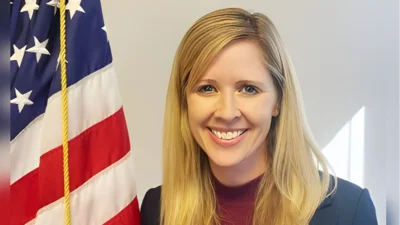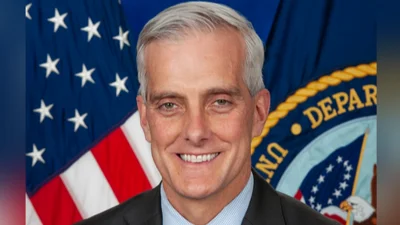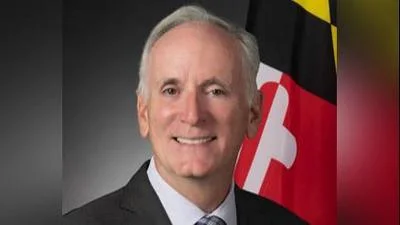Ben Jealous, who is running for governor of Maryland, supports a single-payer health care system. | File photo
Ben Jealous, who is running for governor of Maryland, supports a single-payer health care system. | File photo
Democratic gubernatorial contenders in several states, including Ben Jealous, who is running against Gov. Larry Hogan in November, support a single-payer health care system, according to a news release by the Republican Governors Association (RGA).
RGA believes data shows that a single-payer system would lead to tax hikes for working families. The organization claims the system could cost as much as $32 trillion for a national system. RGA cited one study that showed a national single-payer health care system would force enormous expenses on a state level.
Republican gubernatorial candidates who are facing single-payer system advocates are portraying the Democrats as "reckless, destructive spending addicts," according to the RGA news release.
In July, RGA ran an add against Jealous, calling him "Tax-and-Spend Ben Jealous" and noting there would be a nearly $3,000 levy for every man, woman and child if his single-payer system were to come to fruition. RGA spokesman Jon Thompson said in the news release that embracing a single-payer system would harm campaigns.
"Embracing an expensive, single-payer health-care system could be a major drag on their campaigns, as it shows voters that they are fully supporting the significant tax hikes the system would require," Thompson said in the news release.
RGA expects the ads to expand to other states. Democratic gubernatorial candidates in Connecticut, Rhode Island and Florida have all supported single-payer systems, but have not provided details on them.
RGA says Ned Lamont in Connecticut claims he will "champion a single-payer system" at a national level, while Rhode Island's Matt Brown wants to create an "expert commission of health care and economic advisers" to lock down the details. Florida's Andrew Gillum wants a single-payer system, but wants it to be approved by federal government, according to the news release.
In Colorado, a single-payer system was defeated by voters in 2016.






 Alerts Sign-up
Alerts Sign-up